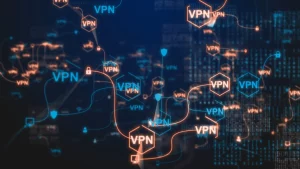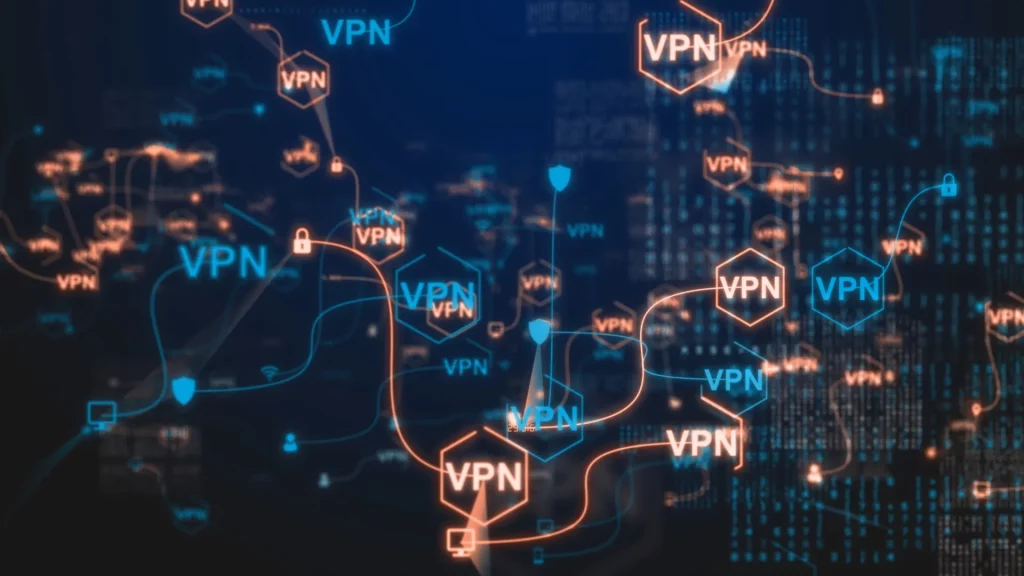With so many Virtual Private Network (VPN) providers available today, choosing the right one can feel overwhelming.
Not all VPNs are created equal — some may log your data, slow down your connection, or even expose you to security risks. That’s why it’s essential to know what to look for in a secure and reliable service .
In this article, we’ll guide you through:
- The key factors to consider when selecting a VPN
- Paid vs. free VPNs – what you should know
- A list of the top 5 most trusted providers
- How to avoid fake or unsafe services

Key Factors to Consider
Before choosing a VPN , evaluate these critical aspects to ensure your online privacy and performance needs are met.
1. No-Logs Policy
A no-logs policy means the provider doesn’t track or store any of your online activity, including browsing history, IP addresses, or session times.
❗ Always verify that the provider has an independently audited no-logs policy.
2. Server Locations and Coverage
The more server locations a VPN offers, the better access you’ll have to geo-restricted content and faster speeds.
✅ Look for services with servers in at least 40+ countries.
3. Encryption Standards
Make sure the VPN uses strong encryption like AES-256 , which is considered military-grade and virtually unbreakable.
Also check for:
- OpenVPN or WireGuard protocols
- Kill switch functionality (disconnects internet if the VPN drops)
- DNS leak protection
4. Connection Speed
Some VPNs can significantly slow down your internet speed due to encryption overhead and server distance.
✅ Opt for providers known for fast speeds and unlimited bandwidth.
5. Multi-Device Support
Most people use multiple devices — PC, smartphone, tablet, smart TV, etc.
✅ Choose a VPN that supports at least 5–10 simultaneous connections and offers apps for all major platforms.
6. Customer Support
Issues can arise — from setup problems to server errors.
✅ Look for 24/7 live chat support, detailed FAQs, and user guides.
7. Pricing and Value for Money
While free VPNs exist, they often come with hidden costs like ads, limited features, or poor security.
✅ Compare plans, trial options, and money-back guarantees before committing.
Paid vs. Free VPNs – What You Should Know
Many users opt for free VPNs to avoid paying, but there are significant trade-offs.
⚠️ Many free VPNs monetize user data — putting your privacy at risk.
If you’re serious about online security , always go for a trusted paid service .
Top 5 Most Trusted Providers
Here’s a quick comparison of the best VPNs in 2025 based on security, performance, and reliability:
All of these providers offer strong security , excellent customer support, and apps across all major platforms.
Avoiding Fake or Unsafe Services
Unfortunately, not every VPN claiming to be secure actually is. Some services:
- Claim to be “no-log” but keep hidden records
- Inject malware or adware into their apps
- Sell user data to third parties
Red Flags to Watch For:
- Poor reviews or negative feedback from cybersecurity experts
- No transparency about logging policies
- Too many features promised for free
- Based in countries with strict surveillance laws (e.g., China, Russia, members of the Five Eyes alliance)
✅ Always read independent reviews and choose a VPN registered in a privacy-friendly country like Switzerland, British Virgin Islands, or Panama.
Final Checklist: Is Your VPN Trustworthy?
✅ Does your VPN have a verified no-logs policy?
✅ Does it offer strong encryption (AES-256)?
✅ Are there servers in multiple countries?
✅ Does it protect against DNS leaks and offer a kill switch?
✅ Is it based in a privacy-friendly jurisdiction?
✅ Does it provide good customer support and clear pricing?
Stay Safe Online
Choosing the right VPN isn’t just about bypassing streaming restrictions — it’s about protecting your identity, securing your data, and maintaining control over your digital life.
By carefully evaluating the key features and avoiding unreliable services, you can enjoy a safe, private, and unrestricted internet experience in 2025 and beyond.




